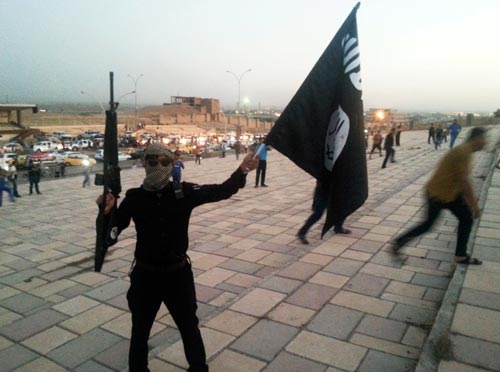The declaration of a new Islamic “Caliphate” by the Islamic State of Iraq and the Levant (ISIL) has been criticized by wide circles of Syrian and Iraqi Sunni scholars and Islamic groups, saying the terms of a true Islamic Caliphate have been realized at present time.
“Those who announced it did not consult the sons of Iraq, or their leaders,” the Association of Muslim Scholars of Iraq (Amsi) said in a statement cited by the BBC on Wednesday that strongly criticized the decision to announce a caliphate.
“It is not in the interest of Iraq and its unity now, and will be taken as an excuse to partition the country and harm the people,” Amsi, which gives political guidance to the non-Isis rebels, added.
“The prerequisites for success need to be prepared – failure will rebound on everybody. None of this has been done, so the oath of allegiance and this situation are not binding on anyone.”
Last June 30, ISIL made a surprise announcement of the establishment of a new Islamic “caliphate” and changed its name into the Islamic State.
The declaration was made in an audio recording distributed online in which ISIL declared its chief Abu Bakr al-Baghdadi “the caliph” and “leader for Muslims everywhere”.
Following the announcement, the al-Qaeda offshoot group told other Sunni rebel groups which joined the uprising in Iraq to swear an oath of allegiance and give up arms.
The new order has put other Sunni rebel groups, made up of former Iraqi military personnel, tribal elements and adherents of Saddam Hussein’s Baath party, who protested injustices of al-Maliki government in a dilemma.
Tribal and rebel military sources say that after two days of talks in Mosul, they have been told that they must take an oath of allegiance to the new caliphate, and that only fighters from the Islamic State are allowed to bear arms.
“We will not take the oath of allegiance, and we will not hand over our weapons – we will hide them,” a senior Sunni rebel source told BBC.
“But we can’t fight Isis, it is too strong and it would be a losing battle. We give in. But we will remain active in Baghdad, where Isis doesn’t have a presence.”
Even if they take the oath, other fighters will still have to hand in their weapons. The BBC reported one senior rebel source saying, “our revolution has been hijacked”.
Syrian Groups Too
Some Islamist groups fighting in Syria have rejected the announcement of an Islamic caliphate by ISIL.
“The terms of the caliphate have not been realized at present, especially in terms of state organizations,” a statement by nine groups, including fighters and religious scholars, was quoted by Reuters, calling on Muslims to avoid siding with ISIS.
Al-Qaeda’s official Syrian branch, the Nusra Front, one of ISIL’s main rivals in the country, has yet to comment.
Yet, for some analysts, the announcement of ISIL’s leadership across the Muslim world, in a direct challenge to Al-Qaeda’s leader Ayman al-Zawahri, ISIL could deepen divisions and rivalry among Al-Qaeda offshoots.
“This announcement will only deepen the conflict with the central Al-Qaeda organization over the legitimacy of who represents it now and as a result who represents true Islam,” said Jordan-based Hassan Abu Haniyah, an expert on jihadist Islamic groups.
Abu Mohammed al-Maqdisi, a Jordanian scholar who is one of the most influential voices in jihadist thought, has also warned that a radical Islamist group’s declaration of a caliphate in Iraq and Syria would deepen already bloody infighting among jihadists.
“Will this caliphate be a sanctuary for every oppressed one and a refuge for every Muslim?” Maqdisi asked in a posting on his website on Wednesday cited by India’s dna.
“Or will this creation take up a sword against Muslims who oppose it, and with it sweep away all the emirates that came before … and nullify all the groups that do jihad in the cause of Allah in the different battlefields before them?”
Al-Maqdisi, widely seen as the spiritual guide of al Qaeda’s slain leader in Iraq, Abu Musab al-Zarqawi, said a worrying future now awaited jihadists fighting in Iraq and Syria under such a caliphate, where their lives would be threatened if they did not pledge allegiance.
He added that he feared that the group might turn weapons captured from the Iraqi army against its rivals rather than against Shiite prime minister Nuri al-Maliki’s US- and Iranian-backed government.
“My eyes are not pleased with the shedding of Muslim blood by any party in the circle of Islam, even if they (the targets) are violators,” he said.
“… We are warning you against mutilating the religion of Allah and corrupting and sullying it with the blood of the Muslims and the mujahideen (holy warriors),” he said. ONISLAM






 WhatsApp us
WhatsApp us 

